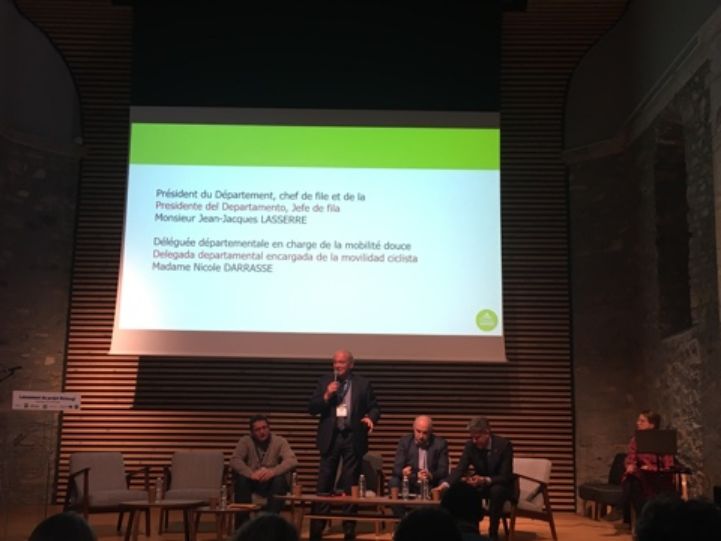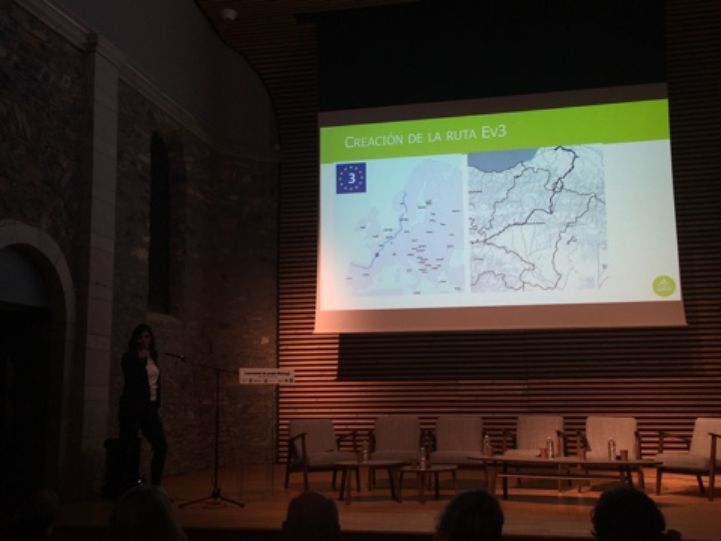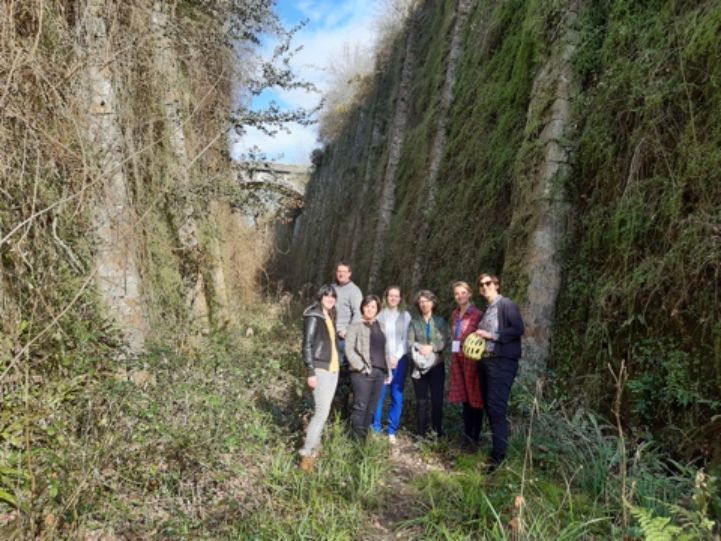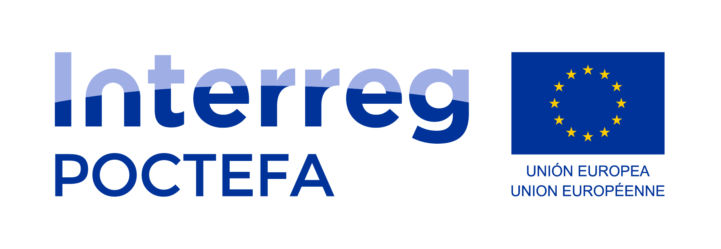New BICIMUGI project kicks off in Saint-Palais, at the crossroads of 3 pilgrimage routes
The mayors of many municipalities in the Inner Basque Country, from Escos to Estérençuby in France, together with representatives from the Spanish Regions of Navarra and La Rioja, were present at the event. They all expressed their support to this project, which is the first initiative of this scale to develop cycling in the regions’ rural areas, as highlighted by Jean-Jacques Lasserre, Chairman of the Pyrénées-Atlantiques Departmental Council in his opening address.

José Maria Aierdi, Minister of Territorial Planning and Second Vice President of Navarra, emphasised that two fundamental elements stand out in the BICIMUGI project: it is an alternative mobility project that links territorial development and cycling while taking existing itineraries as a starting point, and it is based on a principle of sustainability.
This introduction was followed by presentations from all technical partners of the project: the European Cyclists’ Federation, La Rioja Turismo, Nasuvinsa (Navarra, a member of ECF’s Cities and Regions for Cyclists Network), Estérençuby municipality, Saint-Palais municipality and the Department of Pyrénées-Atlantique. Each partner presented the activities they are going to do in the frame of the project, including:
- The development and signing of local cycling networks connecting the villages to major towns and cities, such as Bayonne and Saint-Jean-Pied-de-Port;
- The creation of services for cyclists;
- The installation of counters;
- The promotion and awareness-raising of cycling mobility in rural areas and among younger audiences; and
- The development of intermodality, especially along the hillier stretches.
The role of ECF in this cross-border project includes providing international expertise on monitoring and evaluating the economic impact of cycling tourism; coordinating the exchange of best practices among European cities and regions working on rural mobility; producing methodologies and standards on relevant topics (e.g. European Certification Standard for long distance cycle routes (ECS)); and communicating the results of the project to a European audience.

With EuroVelo 3 – Pilgrims Route forming as a backbone and taking tourism as an enabler of local development, the project will consider a triple perspective of sustainability, social improvements and economic growth. Focusing on rural areas is a good way to promote local products: Jean-Louis Poydessus, mayor of the border municipality of Estérençuby, mentioned the opportunity the project presents in the development of the region’s businesses. It will also raise awareness of cycling mobility amongst the local communities.
Additionally, the participation of La Rioja Turismo, Nasuvinsa and the Department of Pyrénées-Atlantique in the EuroVelo 1 – Atlantic Coast Route (AtlanticOnBike) project will allow for synergies between the two EU-supported projects.
The BICIMUGI kick-off took place in the former chapel of the Franciscan convent in Saint-Palais, a location that fits perfectly the theme of the of the 5,400-km EuroVelo 3 – Pilgrims Route. This long-distance cycling itinerary linking Trondheim in Norway to Santiago de Compostela in Spain follows historical pilgrimage routes across Europe. The charming village of Saint-Palais finds itself at the crossroads of 3 such routes, which were also the busiest: Via Turonensis (followed by EuroVelo 3), Via Lemovicensis and Via Podiensis. With 2021 being the next Jacobean Year (Xacobea 2021), it looks like the BICIMUGI project is taking place at the perfect time.

BICIMUGI is a 30-month project taking place from January 2020 to June 2022, with a budget of over 4.4 million euros, bringing 6 partners together around the development of connected cycling itineraries in rural areas accessible for all, including young people, mobility impaired people, retired people, etc. It is co-funded by the Interreg POCTEFA Programme.

Author(s): Florence Grégoire, Ed Lancaster